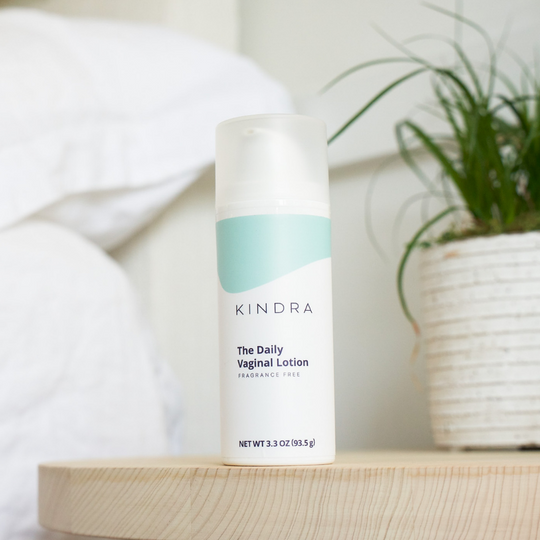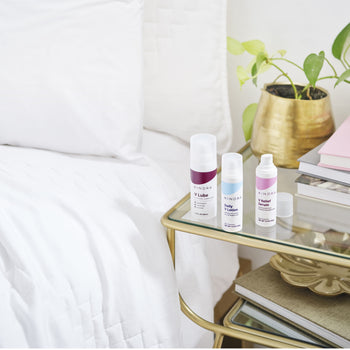Look, I totally get that going to the Gyno gives every person some level of the heebee jeebees. This is particularly true when it comes to talking about things that impact sex, so let’s discuss how to prepare for the visit and what to expect when talking to your healthcare provider about a very personal topic: vaginal dryness.
First, remember that nothing you say or show your provider is going to throw them for a loop, and if it does, I want you to feel empowered to ask for another provider. So, when I say prepare for the visit, it doesn’t mean that you need to prepare like it's a date with a partner that you hope to see naked. It does not mean that you have to wax, shave, moisturize, bedazzle, or do anything to your vulva or vagina that you would not normally do. It DOES mean, however, that you should take a moment and write down all of the things about your parts that have been bothering you. Then think about all the things that impact it and write it down like you were writing a diary entry.
Dear Diary,
I’m really bummed that my vagina has been dry since X. It particularly bothers me when I use A, or after I do B. During sex I notice C. After I changed D, I noticed that my symptoms are better/worse, and adding E did not help at all. I mostly have issues in my vagina/vulva/both.
Love,
Yourself
This format may seem silly, but seriously though, take a vulvar/vaginal mindfulness moment and write it down. That way, when you speak to your practitioner, you will be prepared.
It is often a challenge for providers to balance not wanting to be too invasive with making sure that all of your questions are answered. So if you are not prompted to speak on this topic, be sure to say, “I have a question” and get right to it. In fact, you may notice that your provider is both relieved and excited that you have brought this issue up because now they know they can broach this incredibly personal topic without you running for the door, paper gown flowing behind like a cape in the wind.
Remember that asking probing (pun intended) questions is part of your healthcare provider’s job. So when they ask about arousal, orgasm, incontinence, or bleeding, it is just part of their job (and yes, vaginal dryness can be related to all of these other issues).
Last, there are a plethora of treatments for vaginal dryness, including topical creams, cognitive behavioral therapy, biofeedback, and pelvic floor physical therapy, to name a few. If it’s suggested that you try one or more of these treatments, it is okay to ask what the treatment entails or what the product contains.
While vaginal and vulvar dryness is a normal part of a person’s experience, please don’t feel that normalcy means that you have to “suck it up and deal.” The dryness can impact your quality of life in a significant way and you don’t need to suffer. Remember that your provider wants you to feel comfortable talking to them about all kinds of personal things, and I hope this narrative gives you a roadmap for being your own best advocate.
Leave a Reply
Tags: Body Talk from professionals Health & Wellness healthy vagina menopause menopause 101 menopause specialist menopause symptoms painful sex sex













